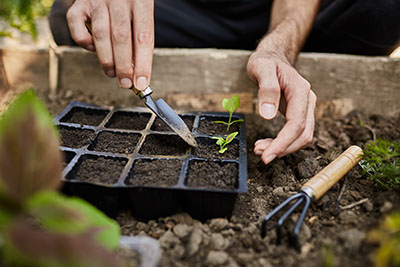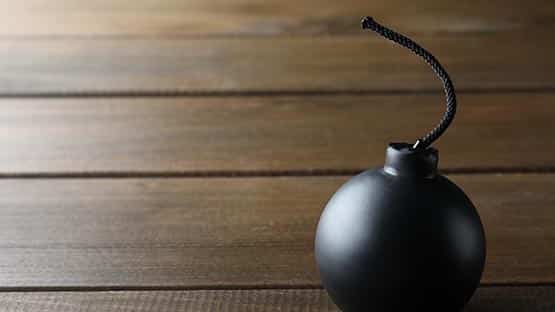
Many people viewing the best YouTube channels for preppers are fascinated by the off-grid lifestyle of the real-life characters. The videos show the skills people use to survive without access to modern technology, public utilities, basic services, and supplies.
However, many of those who would have liked a self-sufficient off-grid lifestyle are prevented from doing so by their jobs or family responsibilities. As a sort of compromise, some people are trying to learn and practice their off-grid skills even if they live in the city.
If you’re interested in an urban off-grid lifestyle, you have to start learning how to build a survival cache and other skills now.
Getting started
Start your learning journey with a self-assessment. There are many different skills you can learn based on: your living situation, future goals, existing off-grid skills and learning timeline.
For example, if you have a wide backyard, you can use more off-grid skills. If you live in an apartment, you will have fewer opportunities to practice off-grid living.
So, make your assessment and start learning any of the following off-grid skills:
1. Build a survival cache
A survival cache is a collection of food, water, weapons and other supplies that you may need in cases of emergencies when you have to leave your home. To build your survival you have to plan and determine the following:
- What items will be in your survival cache? It’s better if you can review with family members.
- Location of the cache. It should be a secret known only to family members. Learn from the experts how to determine the best location. Make sure to document the location.
- Appropriate containers of items for caching.
2. Gardening and food preservation
Knowing how to plant crops and raise livestock for food are important to survive off-grid living. You can’t always rely on the availability of wild plants and animals for food.
City dwellers should learn the following:
- Urban gardening where you plant in containers placed on balconies or windowsills if you don’t have a vacant yard. Some practice vertical gardening and hang the containers on exterior walls and fences.
- Composting biodegradable household waste if your city does not require “green bins.” You reduce the waste to the dumpsite and you have organic fertilizer for your plants.
- Raising livestock if you have enough space.
- Preserving food that you can include in your survival cache.
3. Harvesting rainwater
Videos on off-grid life usually show people digging wells for their water supply. However, that is not easy for city dwellers who live in houses with limited spaces. The well will also be close to various sources of contamination.
An easier alternative to well drilling would be rainwater harvesting. You can buy or build your rainwater harvesting system. The system can be a simple barrel or a series of tanks equipped with pumps and filters.
Rainwater is not available for the whole year but you can save money by reducing your consumption of water from your city’s water supply system. In addition, rainwater is better for plants than chemically-treated tap water.
4. Off-grid internet
Unless you always need to be online for your business or work, you can stop subscribing to an internet service provider. You can get online for free in some coffee shops or designated areas offering free WIFI. There are also places that offer a paid internet connection.
5. Set up shelter outside your home
You will need to learn how to put up a tent or shed, simple carpentry skills and basic knots to tie or join things together.
6. Off-grid electricity
Solar panels allow you to enjoy the benefits of electricity that is not generated by fossil fuels. You will not only save money but help save the environment.
So, learn how to choose the right solar panels for your place and the best location to install them.
To save electricity, learn how to wash clothes manually or use a non-electric or foot-powered washing machine. Then, hang the washed items to dry.
7. Off-grid cooking
The most common way of off-grid cooking uses small branches as firewood. This kind of fuel is available to people who have small and big trees near their houses.
City dwellers can also use charcoal to build fires and save on gas and electricity. Or you try a solar outdoor oven and cookware.
8. Health care
Health care services are not immediately available to those who live off the grid. It is a must to learn the following:
- Herbs and other plants with medicinal properties that you can plant in your garden, balcony or kitchen window sill. Learn also the various natural remedies that you can include in your natural medicine chest. For example, garlic has anti-bacterial properties as well as effective in lowering blood pressure.
- Caring for wounds and what to do to stop severe bleeding
- First Aid for various medical emergencies. You can enroll in courses that teach people without medical backgrounds how to perform cardiopulmonary resuscitation (CPR) or Heimlich Maneuver and other kinds of first aid.
Some first aid skills are simple enough that you can learn them from tutorials online.
9. Physical fitness
Off-grid activities require more physical strength than what ordinary city dwellers regularly experience. So, engage in exercises to strengthen your body.
Conclusion
The skills needed to survive off the grid are gained from training and practice. You can learn most of them from easily-available information. You can develop your expertise through trial and error application of what you learned theoretically. You can also directly ask knowledgeable friends and other off-grid skills experts.
It takes time to develop expertise. So, it’s better to learn some off-grid skills now, Some of the skills are not easy to learn but you get a rewarding experience from the challenges you had to undergo.
Story by Ben Brown










